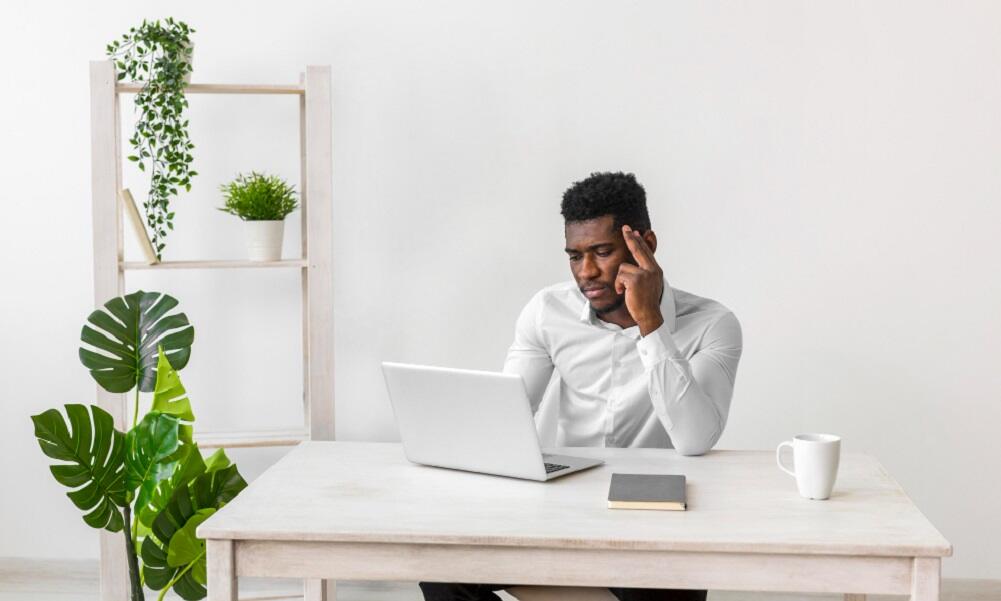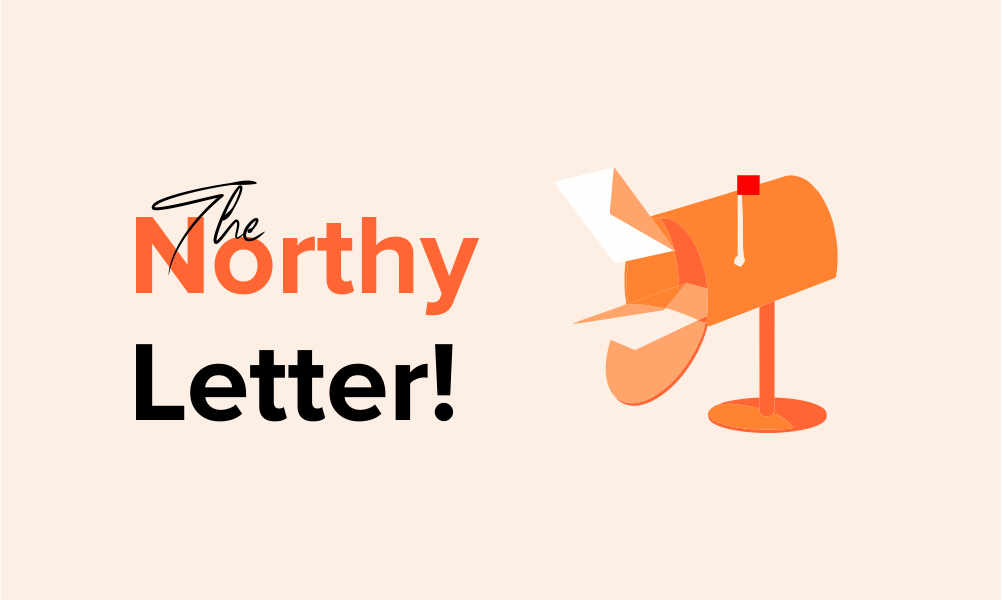
by Michelle Anama Abari | Jan 24, 2022 | Personal Growth
The ability to analyze arguments, evaluate evidence, and distinguish between fact and opinion is a valuable skill that most people term critical thinking. In this article, I will be tutoring you on learning how to think critically. Stay with me.
What Does Critical Thinking Mean?
A simple definition is that critical thinking is the analysis of factual evidence to form a judgment. However, a closer inspection of the term and its meaning shows there are other meanings. The Stanford encyclopedia of philosophy defines critical thinking as the core concepts of the process of ‘careful goal-directed thinking’. Another university’s definition is that ‘good critical thinking includes recognizing good arguments even when we disagree with them, and poor arguments even when these support our point of view’.
In my opinion, I can say that critical thinking is the art and act of analyzing, interpreting, inference, explaining, self-regulating, open-mindedness, and problem-solving skills one acquires to tackle a situation.
There are some benefits of critical thinking and some of them include:
- Question assumptions
- Make better decisions
- Exercise curiosity
- Create compelling arguments
- Reflect on yourself and your life
There are other benefits of critical thinking and some of them include increasing memory and retention capabilities, open-mindedness, emotional control, handling criticism especially criticisms at the workplace, schools, home amongst others. Critical thinking has a million sides to it and there are lots of benefits to learning how to think critically.
How to Think Critically
1. Identify the Issue
When faced with a situation or problem, determine what has caused it.
2. Analyze the Arguments
There will usually be several sides to an argument, so it’s important to understand who is saying what and how valid each position is.
3. Discover the Facts
It’s essential to separate the facts from the opinions and assess how accurately the evidence is presented.
4. Challenge Your Biases
Ask yourself whether or not you’re making assumptions, why you believe a certain point, and whether you’re letting confirmation bias, heuristics, framing, or common fallacies impact your thinking.
5. Decide on Significance
Each side of an argument will likely have supporting evidence. Deciding which information is most important, deductive, valid, and has a sound premise will help decide the significance of each.
6. Draw Conclusions
The various steps above will lead and help you to decide which option or argument (if any) is the most relevant. You can also weigh up the strengths and weaknesses of all options.
Honestly, learning how to think critically is very essential in our daily lives and there are a million and one ways to think critically.
After you must have reached this column and understood what critical thinking entails, your question then shifts from ‘what does critical thinking mean?’ to ‘how do I improve critical thinking skills?’
How to Improve Critical Thinking Skills
There are several ways that you can achieve the benefits of critical thinking, including:
1. Use Scrutiny and Skepticism
Requires little effort to accept things at face value and believe what you’re being told.
Can be difficult to make effective decisions or draw informed conclusions when you’re surrounded by inaccurate information.
3. Use Reliable Sources
When you’re researching a topic to make an informed decision, always pay attention to the source. Look at evidence-based information from reliable outlets and be careful of how statistics are presented to you.
4. Listen Actively
Active Listening is a technique that ensures the listener concentrates, understands, responds to, and remembers what’s being said. It’s also about observing behaviour and body language.
5. Develop More Empathy
Being able to put yourself in the shoes of another person allows you to understand their point of view, motivations, and aspirations.
Most people fail to realize that critical thinking has its root ineffective communication. Communicating well helps one to look at not only the speech of an individual but also the body language and tone of that individual to know your next words. Critical thinking uses communication as a skill to make better decisions.
Final thoughts…
As I said earlier, critical thinking as a skill is a valuable skill that can help us make better decisions and judgments. It helps us as individuals make life-changing decisions and also see through things that aren’t real.
Critical thinking should not be seen as a concept, but as a skill to acquire, it’s very relevant in our lives and should be treated as such.

by Editorial Staff | Dec 12, 2021 | Northy Letter
My hands and feet are freezing right now and I could be in bed, enjoying some warmth but I have to write to you. We can’t lose communication, I know it’s important to me, is it important to you? Here are what we have for this week:
Monday
The New Year is approaching and I bet you have some plans for it. Maybe I can convince you to add one more thing to your list. Wouldn’t it be interesting to learn a new language? Yes? Yes! Here are 7 Quick Ways to Learn a New Language by Yourself Quickly. Just picture yourself mamacita-ing your way into Spanish.
It’s a little embarrassing that as I write to you now, my bio is nothing to write home about. I always feel I don’t have to try writing a good bio because I don’t have many great achievements and I go online and everything seems so much harder so I usually just wing it. But then, I’m trying to find a remote job and I have to write a better bio. Tell me we are in the same boat. If we are, Umar Farouk Kabir has a solution – How to Write a Professional Bio with Examples.
Are you intelligent? Or an investor? What if I told you that you could be both? Pick up Benjamin Graham’s The Intelligent Investor and let’s make it work. You’re about to tell me you hate reading but is this how you want to live your life comrade? These are the 15 Books Every Investor Should Read. You’re smart, I know you’ll give them a chance.
Tuesday
You’re not a great spender, I am not either. I am so reckless with money and I can’t keep track of where they disappear to once I start going through them but with the help of Umar Farouk Kabir, I have The 10 Best Expense Tracker Apps in 2022 to start afresh. It wouldn’t hurt to start when the year starts.
Find Out Your Ideal Job When You Take This Quiz. If you’re confused as to what path to take in life, maybe this is a sign to take this quiz and find out. Don’t just fold your arms and wait for fate. We’ve never been quitters so let’s not start now.
Wednesday
You have heard of yeast infections, vaginal infections but you haven’t heard of vaginismus? Maybe this is because our society frowns upon conversations that are even in the slightest bit sexual. However, this is a major concern because This Woman Has a Rare Medical Condition, She Doesn’t Have a Hole. You should read this because Wow! Yeah, it is that shocking.
Pineapple is such a fruit and we have always known that fruits are good for pregnant women so why it is that pineapple is bad for them now? Find out on 10 Foods You Should Avoid When Pregnant, No. 5 is the Worst. I was shaking with anger until I saw the reasons, you’d stop shaking too if you saw them.
Thursday
What’s that thing people say? What a man can do, a woman can do better. Such is the story of Queen Amina. A woman whose story passes down through the Hausa People. Read the Biography of the Great Queen Amina of Zazzau and see how she led an army of men into war.
I can bet a thousand dollars You Won’t Believe How the Famous Arewa Knot (Dagin Arewa) Originated. That thing is everywhere but I have always looked at it as a logo, nothing more. Turns out there’s more to it than being just a symbol.
Saturday
Weekends are times of the week where you have more space to increase your kitchen expertise by trying new recipes or improving on the ones you have. On that note, learn How to Make Awara (Soya Beans Cake) and How to Prepare Your Delicious Dan Sululu. These are foods you eat not because you are really hungry but because you just crave them. The spice is out of this world.
Sunday
I have a dream of home-schooling my kids until they are 5 years old because I truly believe home-schooled kids are smarter than their peers. Montessori Education as a Tool for Arewa Mothers is the best place to start. If you are thinking about this too, then I have got you covered for the future or now.
And we have come to the end of our newsletter for the week. I hope you had fun with it as I did, aaaaaand I can’t wait to see you next week bud!

by Michelle Anama Abari | Dec 6, 2021 | Personal Growth
There are millions of ways to learn a new language by yourself quickly. Learning languages as a whole can be easy depending on the language of interest. You don’t only learn the language, you learn the culture of that language because the language is a huge part of that culture.
I can say that no language is hard. It all depends on your zeal and interest in that language. Languages are fun to learn. In simple words, learning a new language by yourself quickly all begins with your interests.
To learn a new language by yourself quickly, here are some very vital points to note.
Ways to Learn a New Language by Yourself
1. Download Apps Relating to the Language of Interest
If you’re looking to learn and enhance your ability in your desired language, then a good way is to download apps in that language. It could be Quizlet apps, dictionaries, or even pieces of literature written in your desired language.
The main idea here is to enhance your vocabulary and to also get familiar with words and maybe signs or rules in that language. Take French and Arabic for example, these are languages with rules and signs so getting an app on these languages should be vital to your learning of the desired language.
2. Listen to Audios and Videos in the Language of Interest
To be good in conversations and to learn your new language quickly, listening to audio and watching videos is another relevant point in learning a new language. By listening to audio and watching videos, you get to boost your conversational ability in that language. You get familiar with the way certain words are pronounced and sometimes in what context they are used.
Watching videos in your desired language also gives you an insight into the culture of the owners of the language.
3. Make Language Learning a Daily Habit
People complain that they can’t learn a language because it’s too hard or they aren’t “good” at it. In reality, the real reason is that people can’t get themselves to practice the language consistently.
To learn a language by making it a daily habit, you can do things like, opening your language app or revising your last 5 words from the lesson. All these are forms of active recall which help you to achieve your goal of learning the language quickly.
Again, you can reward yourself in some ways as it will help increase your chances of success. It could mean treating yourself to treats, but for a lot of people, just seeing their success is enough to prolong their habits.
4. Converse With Yourself or With a Native Speaker
A means of testing yourself is trying to converse with yourself or a native speaker. This helps because you get to construct your sentences and also you get to seek correction from a professional who is an indigene of that language.
Also, by learning the words and also trying to converse with them, your knowledge about that language tends to stick longer because mistakes make knowledge last longer.
5. Set Language-Learning Goals
By setting these language learning goals, you get to learn your language quickly and fluently. You set goals like:
Long Term Goals: This could be you saying that in the next 5 years of your life, you would have learned at least 6 languages.
Short Term Goals: This could be you telling yourself that by the end of the week, you must have learned 300 words in French.
Challenging Yourself: By challenging yourself, you get yourself together and also try to be consistent and determined. You also get to do this by letting yourself acknowledge your ‘why?’ and ‘how?’
6. Learn about the Culture of Words
It is not all about learning the words and how they will fit into a page of a book. It is also importantto learn about the culture and history associated with these words.
Learning and understanding the words of a language are deeper than just the language itself. You get to understand and why that language is the way it is and also why it has so many curves or signs as it does which differentiates its pronunciation (an example here could be French, Arabic, or even Mandarin).
Learning and acknowledging the culture of natives is one sure good and quick way to learn a new language by yourself. It does go a long way.
7. Change Your Phone Language to Your Language of Interest
To get familiar with your words and to understand how the vocabulary of these are used, changing your phone default language to the desired language of interest is a good way if I do say so myself. I have also been in the same situation of learning a new language and this point has been of help to me.
When you change your default langue to your desired language, you get familiar with words whether new or not. The main reason for this is familiarity. You get accustomed to the words and you also understand the meaning of these words and when and how to use them.
8. Have Fun
Having fun is one of the ways you can learn a new language by yourself quickly. This point is weird, yes I know, but it is relevant. When doing something that you were not forced to do, you do it with every ounce of passion and determination in your bones. You don’t have to make learning a new language a punishment or a must-do to strike off your to-do list.
Try to have a little fun. Try catching cruises sometimes and also have it at the back of your mind that the language which you are learning is not your mother tongue and it is ok to make mistakes. Laugh a little and take it the moment on your language learning journey as best as you can. People who are fluent in languages made mistakes too.
My Point Is…
When learning a new language, you should also take into consideration the 4 basic steps to learning a new language and these are, listening, reading, watching, and speaking. These are very basic but very important steps to learning a new language.
You also need to understand that learning a new language goes beyond talents and skills. It also deals with the history of those words coming out of your mouth or in those pages. Learning a new language is all about mindset and passion.
I hope this piece is of help to you. If it is, kindly leave a comment in the comments section below. Thank you.
You could also check on 3 Best Tips That Will Help You Achieve Any Goal In Life



